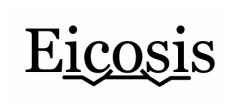预约演示
更新于:2025-12-27
UC-1770
更新于:2025-12-27
概要
基本信息
非在研机构- |
权益机构- |
最高研发阶段药物发现 |
首次获批日期- |
最高研发阶段(中国)- |
特殊审评- |
结构/序列
分子式C16H20F3N3O3 |
InChIKeyAAJMQTLFRTZCJK-UHFFFAOYSA-N |
CAS号1222780-33-7 |
关联
100 项与 UC-1770 相关的临床结果
登录后查看更多信息
100 项与 UC-1770 相关的转化医学
登录后查看更多信息
100 项与 UC-1770 相关的专利(医药)
登录后查看更多信息
135
项与 UC-1770 相关的文献(医药)2026-03-01·BIOCHEMICAL PHARMACOLOGY
TPPU alleviates hepatic ischemia–reperfusion injury by regulating macrophage polarization
Article
作者: Lu, Jiansen ; Pan, Hao ; Zhang, Weiye ; Hou, Wen ; Liang, Hongliang ; Shen, Zhongyang ; Han, Tian
Hepatic ischemia-reperfusion injury (IRI) represents a major challenge in liver surgery and transplantation, with macrophage polarization imbalance being a key contributing factor. This study investigated the protective effects and mechanisms of the soluble epoxide hydrolase (sEH) inhibitor 1-trifluoromethoxyphenyl-3-(1-propionylpiperidin-4-yl) urea (TPPU) and 14,15-epoxyeicosatrienoic acid (14,15-EET) against hepatic IRI. In a murine model of 70% hepatic IRI, pretreatment with TPPU or administration of 14,15-EET during reperfusion significantly alleviated liver injury. TPPU reduced serum alanine aminotransferase (ALT) and aspartate aminotransferase (AST) levels, mitigated hepatic congestion and necrosis, and decreased hepatocyte apoptosis. It also downregulated pro-inflammatory cytokines and chemokines, suppressed neutrophil infiltration, and attenuated oxidative stress by reducing malondialdehyde levels while enhancing superoxide dismutase activity. Mechanistically, TPPU promoted the polarization of hepatic macrophages toward the anti-inflammatory M2 phenotype by upregulating M2 markers and downregulating M1 markers. In vitro experiments confirmed that TPPU reduced inflammatory and oxidative responses in macrophages and protected hepatocytes from apoptosis in a co-culture system. Crucially, co-administration of the EET receptor antagonist 14,15-epoxyeicosa-5(Z)-enoic acid (14,15-EE-5(Z)-E) with TPPU markedly reversed TPPU-mediated protection. This confirms that the protective effect of TPPU is specifically mediated through 14,15-EET and its associated signaling pathway. In conclusion, TPPU inhibits sEH to elevate endogenous 14,15-EET levels, thereby regulating macrophage polarization to mitigate inflammation, oxidative stress, and apoptosis in hepatic IRI. This study not only identifies a potential therapeutic target but also pharmacologically validates the central role of the sEH-EET axis in this process.
2025-11-01·EUROPEAN JOURNAL OF PHARMACOLOGY
Inhibition of soluble epoxide hydrolase ameliorates hyperhomocysteinemia-induced perivascular adipose tissue dysfunction: Revealing epoxyeicosatrienoic acid as a perivascular adipose tissue-derived relaxing factor
Article
作者: Qi, Hang ; Hou, Hai-Tao ; Wang, Xiang-Chong ; Yang, Qin ; He, Guo-Wei ; Wei, Jia-Hui
OBJECTIVES:
Hyperhomocysteinemia harms vascular endothelium and smooth muscle. We recently reported that homocysteine also impairs perivascular adipose tissue (PVAT) function but the mechanisms remain poorly elucidated. This study aimed to advance mechanistic understanding of hyperhomocysteinemia-induced PVAT dysfunction through revealing the role of epoxyeicosatrienoic acids (EETs) in the anticontractile/vasorelaxing activity of PVAT. Further, the effect of targeting soluble epoxide hydrolase (sEH) against hyperhomocysteinemia-induced PVAT dysfunction was explored.
METHODS:
Methionine diet-induced hyperhomocysteinemic rat model and in vitro homocysteine-incubation model were used. PVAT and endothelium-intact (PVAT + E+) or both denuded (PVAT-E-), either PVAT (PVAT-E+) or endothelium-denuded (PVAT + E-) aortic rings were studied for vasoreactivity. Aortic PVAT was measured for EETs, sEH expression and activity, and transferred to skeletonized aorta for vasoreactivity regulation study.
RESULTS:
Both in vivo and in vitro studies showed that homocysteine augments vasocontractile responses to phenylephrine and KCl and attenuates vasorelaxant response to acetylcholine in PVAT-intact rat aortas with or without endothelium. EETs in the aortic PVAT were decreased in hyperhomocysteinemic rats (8,9-, 11,12-, 14,15-EET) and after homocysteine-exposure (11,12-, 14,15-EET), associating with an increased expression and activity of sEH. Treating in vivo and in vitro models with sEH inhibitor TPPU suppressed sEH activity and increased EETs in the PVAT, accompanied by a restored anticontractile/vasorelaxing capacity of PVAT. PVAT from TPPU-treated hyperhomocysteinemic rat suppressed the contractility of hyperhomocysteinemic rat aorta. Both 11,12- and 14,15-EET evoked relaxation in PVAT-E- aorta.
CONCLUSIONS:
EETs are PVAT-derived relaxing factors. Inhibition of sEH prevents homocysteine-induced EETs loss in PVAT, thereby improving the anticontractile/vasorelaxing activity of PVAT.
2025-11-01·JOURNAL OF NEUROSCIENCE RESEARCH
Soluble Epoxide Hydrolase Inhibition Confers Neuroprotection via
PPAR
‐α Activation During Intracerebral Hemorrhage
Article
作者: Martínez‐Torres, Ari Misael ; Morán, Julio ; Navarro‐Mabarak, Cynthia
ABSTRACT:
Epoxyeicosatrienoic acids (EETs), are known to possess potent anti‐inflammatory and antioxidant neuroprotective properties. However, the molecular mechanisms responsible for these effects are not well understood. In this work, we aimed to evaluate the neuroprotective role of EETs in a hemorrhagic stroke model and the possible involvement of PPAR‐α activation in this neuroprotection. Hemorrhagic damage was induced in mice through the intracerebral administration of collagenase VII in the striatum. The neuroprotective effect of EETs was tested in mice by pre‐treatments of 2 h with TPPU, an inhibitor of the EETs metabolism. TPPU was administered intraperitoneally at a dose of 0.5, 1.0, or 2 mg/kg. Brain damage was evaluated based on measurements of motor activity, hematoma volume, brain water content, and blood–brain barrier (BBB) permeability. Additionally, the levels of enzymes involved in the oxidative stress balance, such as NADPH oxidase 2 (NOX‐2) and superoxide dismutase (SOD), were determined by Western blot analysis. Our results showed that EETs exert neuroprotective effects by significantly decreasing all parameters related to brain damage, improving motor function and promoting an antioxidant state, as evidenced by increased levels of SOD and reduced levels of NOX enzymes. Subsequently, PPAR‐α involvement was evaluated through the administration of GW6471, a PPAR‐α antagonist. Pre‐treating mice with GW6471 for 30 min, reverted all neuroprotective effects, including the observed changes in SOD and NOX levels. Our results demonstrate that EETs confer neuroprotection in hemorrhagic brain injury, and this effect is dependent on PPAR‐α activation.
100 项与 UC-1770 相关的药物交易
登录后查看更多信息
研发状态
10 条进展最快的记录, 后查看更多信息
登录
| 适应症 | 最高研发状态 | 国家/地区 | 公司 | 日期 |
|---|---|---|---|---|
| 镇痛 | 药物发现 | 美国 | 2021-02-07 | |
| 炎症 | 药物发现 | 美国 | 2021-02-07 |
登录后查看更多信息
临床结果
临床结果
适应症
分期
评价
查看全部结果
| 研究 | 分期 | 人群特征 | 评价人数 | 分组 | 结果 | 评价 | 发布日期 |
|---|
No Data | |||||||
登录后查看更多信息
转化医学
使用我们的转化医学数据加速您的研究。
登录
或

药物交易
使用我们的药物交易数据加速您的研究。
登录
或

核心专利
使用我们的核心专利数据促进您的研究。
登录
或

临床分析
紧跟全球注册中心的最新临床试验。
登录
或

批准
利用最新的监管批准信息加速您的研究。
登录
或

特殊审评
只需点击几下即可了解关键药物信息。
登录
或

生物医药百科问答
全新生物医药AI Agent 覆盖科研全链路,让突破性发现快人一步
立即开始免费试用!
智慧芽新药情报库是智慧芽专为生命科学人士构建的基于AI的创新药情报平台,助您全方位提升您的研发与决策效率。
立即开始数据试用!
智慧芽新药库数据也通过智慧芽数据服务平台,以API或者数据包形式对外开放,助您更加充分利用智慧芽新药情报信息。
生物序列数据库
生物药研发创新
免费使用
化学结构数据库
小分子化药研发创新
免费使用

